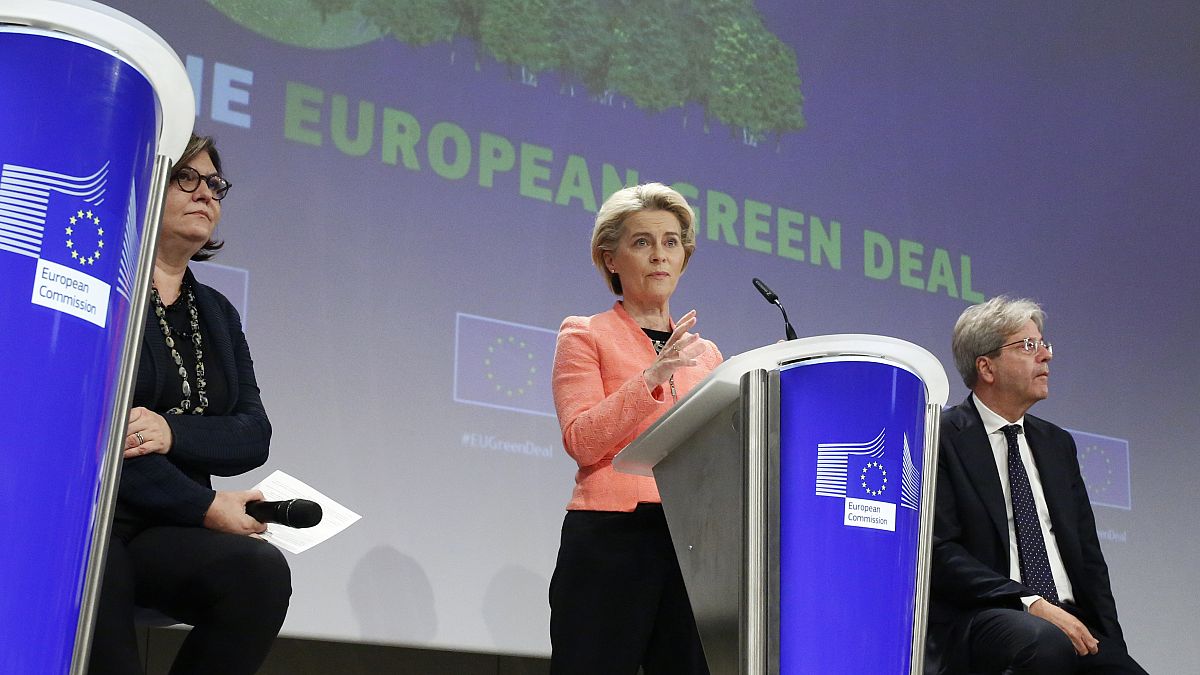The bloc's landmark agreement was initially met with praise but has since hit a few roadblocks.
Once a point of political convergence, the European Green Deal is now a source of opposition within the EU.
The European Commission's flagship project is under increasing attack, with the Nature Restoration Law called into question, the use of herbicide glyphosate extended for another ten years, the pesticide regulation being rejected and the EU's chemical strategy postponed.
For Jutta Paulus, a German Green MEP, the international atmosphere is disrupting the bloc's objective of carbon neutrality by 2050.
"People say: too many crises, don't bother me with too many crises. We have war, we have inflation, I'm afraid I might lose my job, and I don't know who will care for me when I'm old because our societies are growing older," Paulus said in an interview with Euronews.
"All these issues together, garnered with populistic attacks using social media, spreading fake news, make a toxic mixture of rejection against the Green Deal."
The EU has rapidly adopted multiple laws, such as those in favour of renewable energy sources, energy efficiency, a carbon border tax and the eventual end of the combustion engine.
Twelve out of 13 pieces of legislation have been adopted to meet the 2030 target of reducing CO2 emissions by 55%. But the effort is not over, and the political terrain now seems favourable to a more right-wing approach.
"Sometimes we have overdone it or the majority in the Parliament has overdone it. Not giving people the choice, but making very prescriptive decisions from the European level which is never a good idea," Peter Liese, a German MEP from the centre-right EPP Group told Euronews.
"When we do everything that the Greens want, we will either not achieve our climate targets or we will lose a lot of jobs and competitiveness. And both are not good.
"We should prioritise. We should not overdo it and we should take people along," he added.
Some industrial sectors and businesses, as well as the farming community, feel that complying with environmental regulations entails an additional burden. Despite these headwinds, the Commission intends to stay the course.
"We truly need to do two things. One is to continue with our ambition because it is the reality and climate change is at everyone's doorstep," Wopke Hoekstra, European Commissioner for Climate Action said in an interview with Euronews.
"Having said that, we need to bridge that with making sure there is a perspective for our citizens. There is a perspective for our companies and do more to make sure that companies can continue to strive. That people do see a bright future, even if circumstances might change."
Climate protection is more than just an environmental issue. It is also in the EU's interest if it does not want to be relegated in the industrial race for green technologies in the face of China and the United States, who want to win this battle.
The forthcoming European negotiations to set environmental targets for 2040 will therefore be an indicator of the bloc's ambition.
